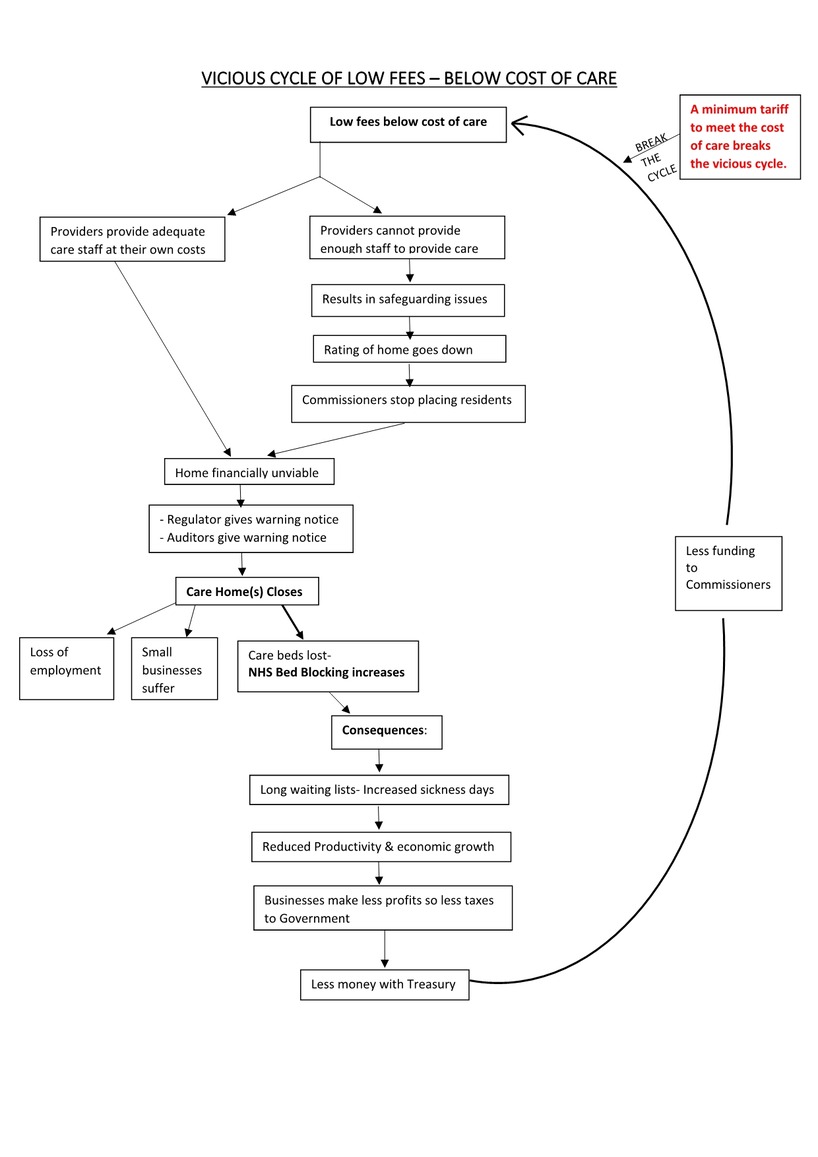Why a Broken Commissioning System Leads to ‘Granny Dumping’
There is a silent scandal sweeping across the country which is leaving older people with high needs vulnerable to inadequate care and safeguarding issues –‘Granny Dumping’.
Granny Dumping, which brings misery to families and brings independent providers close to financial failure, is a well known strategy by Government-funded commissioners of adult social care to move responsibility for care, to unsuspecting providers for high need older residents, and avoiding paying for them.
Both the integrated health care services, and commissioners of adult older social care, place residents at below the real cost of care (as the recent Government study on cost of care has shown). In essence care providers are subsidising these care contracts from day one – and this is just the start of the problem.
The contracts refer to a standard framework of care which implies that for the fee paid a standard number of care hours are provided. However, in reality the contracts are one-sided and worded to avoid mentioning the actual number of care hours to be provided, which directly affects overall care costs. Commissioners do not negotiate the wordings of these contracts and offer a ‘take it or leave’ it approach – which is not equitable, or sustainable.
This is when the real misery starts for families, the older person and the providers.
When the dependency of the older person increases, as it is bound to, and the care hours they need rises, beyond the vaguely defined standard framework of care, the cost of caring for them increases beyond viable limits. So how do providers, who have a responsibility to meet these care needs, continue to care for these residents, without the funds to do it?
Regrettably, ‘Granny Dumping’ is a phenomenon which has become even more prominent and obvious post Covid.
Once placed these vulnerable people are essentially forgotten by adult social care commissioners. Commissioners then refuse to engage in either reassessing these older people or providing appropriate funding to meet increasing needs.
This puts tremendous pressure on families, the older person and care providers and creates major safety issues in care. Even, if safeguarding notices are given, as providers discover to their peril, commissioners simply ignore them. They know that care providers cannot evict residents, families cannot take them home, and under-pressure hospitals will not accept them. Instead they issue letters threatening suspension of placements, in flagrant disregard to competition law and fair practise. Regrettably, ‘Granny Dumping’ is a phenomenon which has become even more prominent and obvious post Covid.

Providers have, rightly, an obligation to meet financial viability and safety requirements, set by regulators, and are put under tremendous pressure risking closure of the homes. Right now, thousands of beds are being lost to callous provisioning of care and the blame is always attributed to the providers. In Scotland, for example one, care home is closing per week, right now.
One major provider, Advinia health care, in the last 12 months had to provide more than 200,000 hours of free care, at a cost of £7.5 million to high need residents whose funding responsibility remained with local authorities and Integrated Care Systems (ICS). This compromises the quality and safety to other residents due to the disproportionate allocation of resources to the high need residents.
In Scotland alone,80,000 care hours were provided by Advinia for free at a cost of circa £2.5 million which the commissioners refuse to acknowledge or pay. One spokesman from Advinia said, ‘we have no choice but to write these off for the commissioners will not pay, nor reassess these high need residents and on asking for payment have threatened with placement suspensions. It does affect the finances of the company and its ability to continue to spend on the physical environment but there is no choice, we have to buckle into them.”
